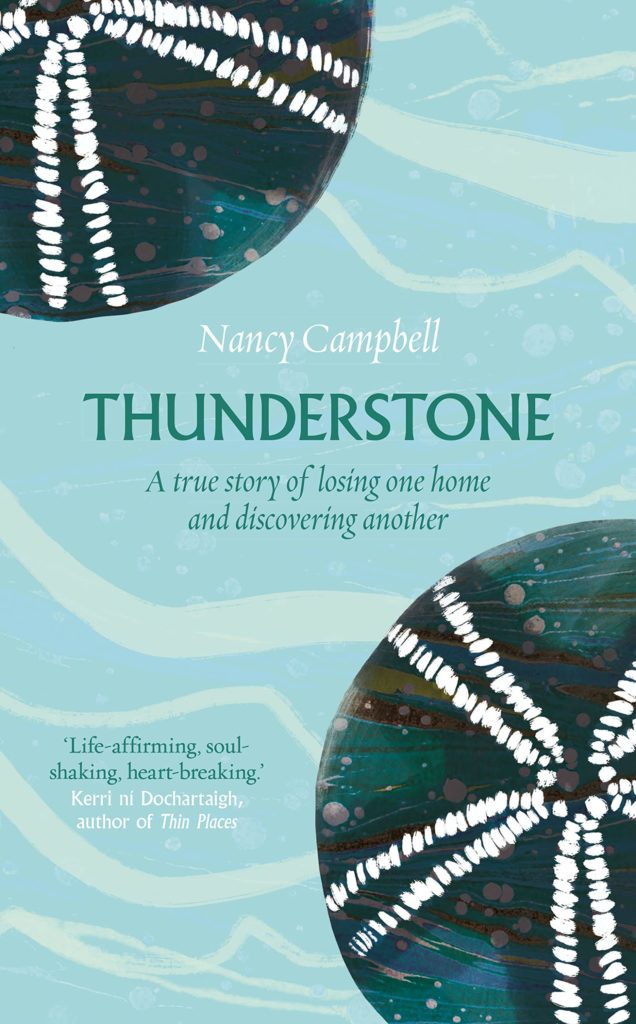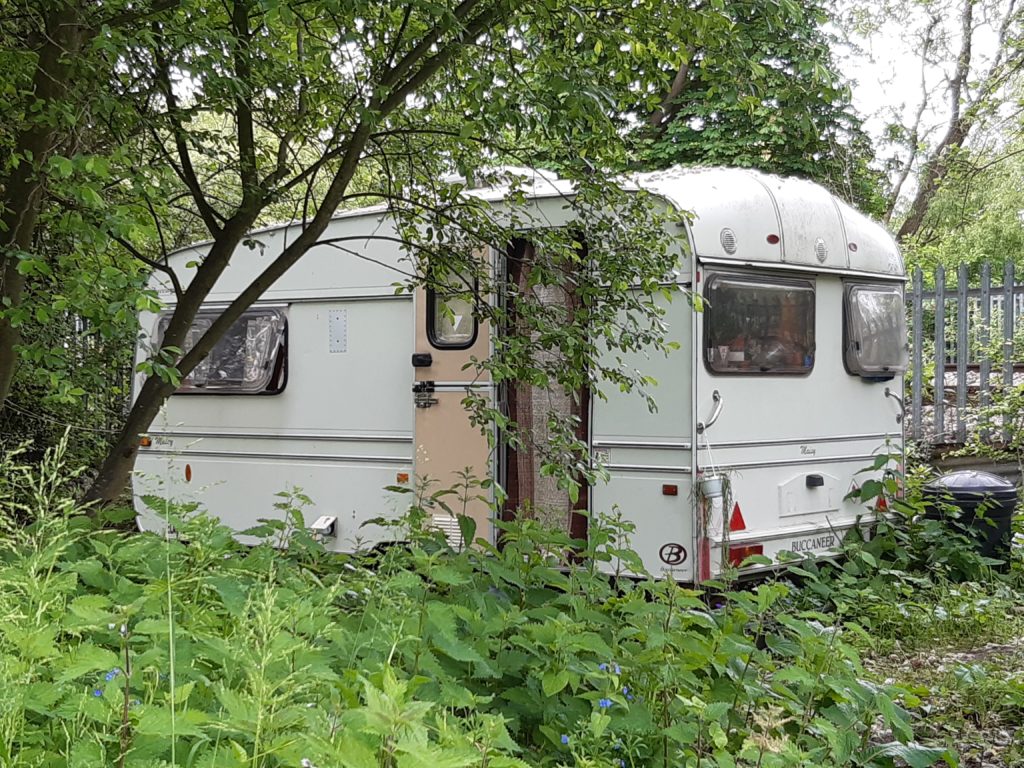An extract from Nancy Campbell’s ‘Thunderstone’, newly published by Elliott & Thompson.

When I was in my teens, I wanted to be either a poet or a haulier. I couldn’t decide whether it would be better to spend the nights writing revolutionary works of experimental literature and hosting bohemian parties or driving up a rain-lashed European motorway listening to classic love songs on the radio, then sleeping alone in the back of my truck, dreaming of a fried breakfast. Later, I wanted to be a location adviser for film (my only qualification, a good memory for places). Or establish a business that would invent new racehorse names for unimaginative stud owners. And always, secretly, concurrent with all these ambitions, the desire to be an estate agent. I loved games of Monopoly with the red and green houses and hotels the size of sugar cubes, so easily bought and mortgaged or sold. I day-dreamed over full-page adverts for stately homes in back issues of Country Life in the dentist’s waiting room. These promised a world quite unlike the string of rented dwellings my family flitted between. In the end my parents no longer bothered to unpack, and my father’s study was always a box room, that is to say it had books in boxes rather than on shelves, an arrangement that had the added benefit of creating a maze that anyone entering had to navigate to reach him. I have not managed to evade the family curse of boxes, but my upbringing helped me to see that a home can be a pit stop, not a prison, and perhaps like a caddis fly larva a carapace to be sloughed, the more frequently the better. It is no surprise that the first home I own should be both small as a sugar cube on wheels and its own form of country estate.
The idea of naming thoroughbreds for a living might have emerged around the time my parents decided the current house was getting cramped, and that I’d be better off in an attic belonging to some strangers. The ‘attic’ was in a fortified keep at the end of a mile-long drive. Many such bastions were built in Northumberland during the fifteenth century to function as watchtowers: pyres were lit on the battlements to warn of border raids. The tower had no more rooms than a normal house, but each of them was huge – occupying the whole footprint of the keep. I saw the octogenarian owners only rarely as they shuffled along the corridor between the living-room hearth and the Aga in the kitchen, two matted sneezing shih-tzus at their heels. The corridor was lined with oil paintings of long-dead stallions and greyhounds and red and blue rosettes tacked up with drawing pins. Everything smelt of saddle soap and boot polish. The Major, once he’d retired from the army, had been responsible for walking racecourses; he was the person who decided whether the ground was good, or firm, or good to firm before a race. (This also seemed an excellent job, but not one I could imagine myself doing.) The Lady was an American, and had lived for a while in Manhattan; glints of frustration at the rural life she had married into occasionally pierced her conversations with the dogs or her husband. ‘Marriage’, she warned me, on one of our brief encounters, ‘is just chit-chat.’
My room looked down onto ancient yew hedges, as thick as the tower walls, which separated the lawns from the ha-ha beyond. In summer I could watch members of the family I did not belong to arguing over the rules of croquet. I would sit in the deep embrasure, which tapered gently to an arrow-slit window, beneath which was a useful chute for pouring molten lead onto unwanted guests. But I never had any guests, my only visitors being bats in winter and dead butterflies in summer. I read a great deal and never learned to drive, and I suppose that is why I am not a haulier.

Photo: Nancy Campbell
I hang my washing out on a line strung between the trees. Rain. Bring washing in. Blue skies. Hang it out. Midday: walk by the Thames. Crickets still scratch out a song in the grass, but yellow cat’s-ear and ragwort and clover are the only flowers remaining. Jarman mentions ragwort as a cure for speech disorders. Heavy clouds are rolling in from the west, and I turn back, walking the shadow where the long grass meets the mown meadow, as raindrops begin to fall. I’m just in time to pull my clothes off the line again.
1 a.m.: Footsteps scrunch on the ballast. A drunken reveller who’s missed the last train, walking home along the tracks? A torch beam flashes through the curtain. Muffled voices. I hold my breath. Has the van been discovered? The footsteps come closer. A bass voice starts singing the Spiderman theme song. The singer does not know the lyrics, so repeats the word ‘Spiderman’ tonelessly like a child falling asleep on a long car journey. To break the spell, someone with a strong Welsh accent calls out, ‘Suck my dick!’ Then the sound of a rake drawn through ballast. Rail repairs . . .
I peek through the curtains and see five or six men in fluorescent workwear, headlamps on their helmets, oblivious to my presence in the dark margins of the wood. If they notice the van at all, maybe they’ll assume it’s abandoned. On the rails, in the dark interlude between trains, their presence seems as transgressive as my own.
The work on the ballast reminds me of the garden at Ryoanji temple in Kyoto, where gravel surrounds fifteen rocks. The rocks are arranged in such a way that one is always hidden from view. The number fifteen has connotations of completeness in Buddhism; in this imperfect world, the fifteen rocks may not all be visible at the same time. One rock must be remembered, or imagined.
I fall asleep and dream myself a high priest, and Spiderman and Suck My Dick the temple under-gardeners, who will have raked the gravel into bold new forms by morning.
*
Nancy Campbell’s memoir ‘Thunderstone: A true story of losing one home and discovering another’ (Elliott & Thompson) is out now in hardback and ebook.
Read Kerri ní Dochartaigh’s review of the book here.